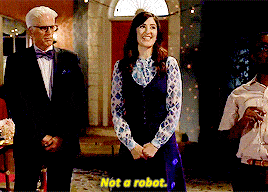Here’s the truth: If you’re in digital marketing, you’ll be hard-pressed to get anything done without the assistance of a web developer.
Developers occupy a critical place in the online ecosystem. They take your ideas and translate them into a format that machines can read, creating functional interfaces and displays for the user experiences you need.
But, for many reasons, developers aren’t always easy to work with. (And, let’s be real, digital marketers aren’t always the best partners, either).
To make it easier for both sides to work smoothly with each other, we’ve prepared a list of tips from our years of web dev partnerships — not only to help you work with developers, but to also help you develop successful long-term relationships, so you can tackle bigger, more challenging projects together in the future.
Keep reading for the full list, or jump to any of our recommendations below.
1. Remember you’re working with a person.
2. Set up a clear communication channel.
3. Get feedback in the early stages.
7. Be prepared for compromise.
1. Remember you’re working with a person.
Some people find developers hard to work with on a personal level. But, before you start blaming your developer, consider that you may be the issue — especially how you may be approaching them.
First and foremost, remember that developers are people, not just a means to your website ends. Don’t just come to them when you have a project; spend a little time getting to know them. If you’re in the office together, offer to buy them a coffee, tea, or other treat beverage. If you’re working remotely from each other, maybe you’ll have to settle for an online chat or two.
When you establish a genuine personal relationship, it can relieve the tension when your competing project demands eventually come to a head.

2. Set up a clear communication channel.
If you’re having trouble getting your ideas across to a developer, you probably haven’t taken time to lay the proper foundation for clear communication.
Communication skills are critical to getting work done, but not everyone communicates in the same way. Our conversion rate optimization (CRO) team frequently works with internal and client website developers, and we’ve found communication to be best when you have a set place for all the details.
Our recommendation: Project management software is the best place for coordinating work. Save email and Slack for communicating time-sensitive ideas and clarifying details.
Give your developers a chance to create this strategy with you. Some people prefer getting task notes in an email, while others want them all added to your project management software. Even more still might desire a personal description via phone or Zoom.
Discuss your personal preferences ahead of time, so that all stakeholders know the best way to get in touch moving forward.
3. Get feedback in the early stages.
It’s crushing to spend weeks solidifying a new and innovative approach to your marketing campaign, only to be told by your developer, “We can’t do that.”
Clearly, it’s much better to get this feedback before you put in all the hard work.
When possible, loop your back-end and front-end developer into the planning process during the early conceptual stages. Discuss the rough idea and see if there are any aspects that might be difficult to code.
Our team recommends establishing multiple checkpoints in the workflow, especially during the idea-sharing process. The earlier you start checking in with each other, the better.
Your web developer might know of certain functionalities that can take your idea above and beyond. Good developers have good ideas, and they think of things your marketing team members would never have considered.
4. Learn their language.
Have you ever asked your developer a question only to discover that you don’t understand half the words they used in their answer?
Words like HTML, Javascript, and CSS don’t mean the same thing to a project manager that they mean to a programmer.
Developers have a specialized language that describes the complicated work they do. If you take the time to study their jargon, it will be easier for you to understand them — and easier for you to make yourself understood.
Understanding web dev know-how can take many forms. Ideally, you should ask them to explain what they’re saying in another way. If you focus and ask questions, you’ll show them you value their work and their ideas.
There’s some personal responsibility here, too. Take notes about what you don’t know and study it on your own.
5. Learn your language.
We know: You already know your language. But you know it too well — so much so that you don’t even know when you’re using jargon that confuses your developer. You may think you’re being clear, but your dev teams might not understand vital parts of the project, especially its purpose and function.
We recommend reviewing the notes and instructions you’re providing. Eliminate or explain any jargon you use. Listen to yourself talk, and do the same edits with your spoken instructions.
If you’ve ever tried to explain your job as a digital marketer or product manager to a date, spouse, or child, you already know what to look for. When their eyes glaze over, you’re using language no one but fellow marketers understand.
6. Get your s#!t together.
Have you ever turned a set of project instructions over, then had the developer say they don’t know what to do with it? Or see a timeline fall behind because they take a long time just breaking down your project brief?
Computers seem to be getting smarter every day, but the truth is that they’re dumb. They only do exactly what we tell them to do. This means developers have to be able to take your ideas and translate them into precise instructions for the computer.
Help them do this by making sure you’ve figured out all the details before you hand the project over to your development team.
Make sure your project brief is clear, explicit, and free of jargon. If you can, try to include the specific requirements the developer needs — but don’t be surprised if you can’t get them all.
That’s when you fall back on your personal relationship to keep things from getting heated and to work through the problems together.
7. Be prepared for compromise.
Hopefully, when you talk with your developer early on, you can eliminate anything from the project that would be impossible to code.
Unfortunately, that doesn’t always prevent technical issues in the project that will be challenging to code, create roadblocks, or not work out exactly as you imagined.
Once the full job description hits their desk, a developer might say they can’t do things exactly as described, or they can’t do it by the deadline requested.
When it comes to web development, nine times out of 10, there’s a compromise process. If you go in with that expectation and an agile approach, you won’t be too disappointed, and you’ll be able to work together to optimize the outcome.
Don’t just plan projects based on your priority list, either. Factor in how much time it will take developers and the value it will have for their team, too, before launching a project.
8. Give them space.
Ever asked for a web dev project update just to receive a surly and unhelpful reply?
What seems like a routine progress check to you is often seen as unreasonable and a distraction from the project by many developers.
The methodology of developing code takes time. If you want the developer to do the work efficiently and correctly, you need to give them that time. Trust that they are doing the work, and don’t bug them for updates every day.
If you absolutely need updates on the project as it happens, establish that during your early communication stages. For example, you could add a “provide update” or “show mockups” card to some of the task steps in your project management tool.
9. Learn. Grow. Repeat.
Finally, make sure that the lessons you’ve learned together don’t get forgotten from project to project.
Set up a follow-up meeting to talk through the project and come to an agreement on what worked and what can be done better next time. Then, build it into the project management tool. Learn the system and identify where to put notes that will help you not just work with this developer in the future, but with other developers, too.
In short, create a project template that helps you get the specs right for next time.
Working with developers is a skill, and it’s important to make sure you’re profiting from your experience. If you do, it gets easier every time, and the results get better and better.
Get the Most from Working with Your Web Developers
If you’re having trouble communicating with a developer or if you’ve had bad relationships with developers in the past, don’t be afraid to have a conversation about it. Ignoring the current problem won’t make it go away. You can avoid repeating mistakes of the past by talking about them with a present developer.
As with any working relationship, the one you have with your developer will have ups and downs. At the end of the day, remember to always treat them with respect, go in with an open mind, and be willing to learn. With this approach, you’ll be more likely to get positive experiences — and positive results — working with developers.











These 9 tips are gold for digital marketers working with web developers! Communication, collaboration, and understanding each other’s roles are key to successful projects. From setting clear objectives to embracing creativity, this article covers it all. Building a strong partnership with web developers is crucial for achieving outstanding online results. Great insights!